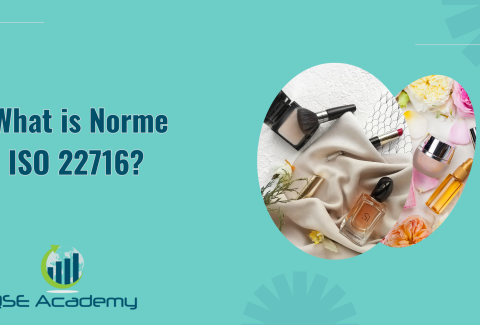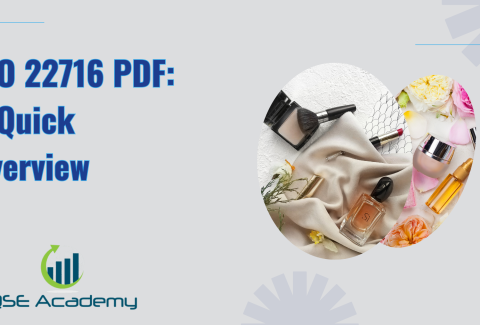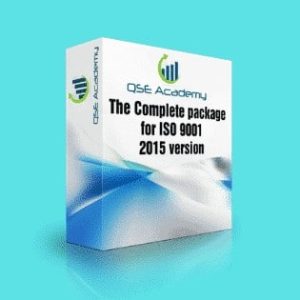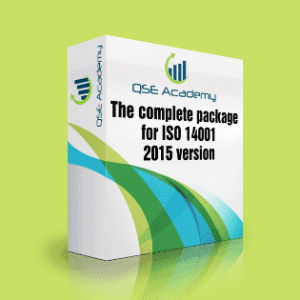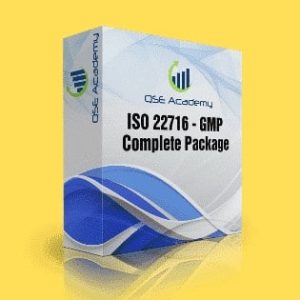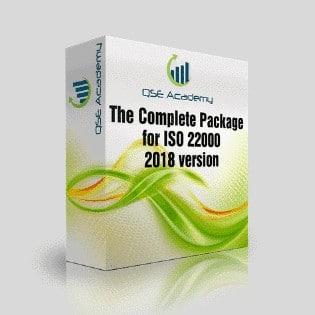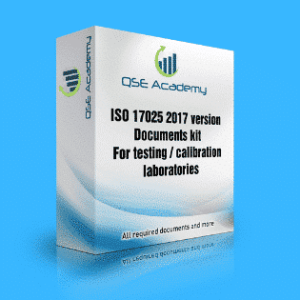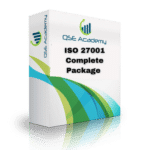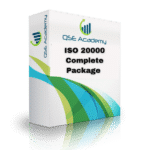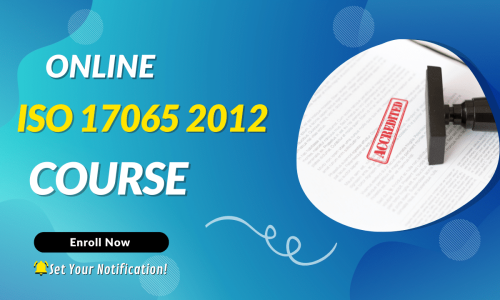Costs of GMP Certification for Cosmetics
Costs of GMP Certification for Cosmetics
If you’re in the cosmetics business, you’ve probably heard about Good Manufacturing Practices (GMP) certification. But what exactly is it, and why is it worth considering, even when the GMP certification cost might seem significant? Let’s break it down together.
Understanding GMP Certification
GMP certification is like a gold standard for manufacturing. It’s a set of guidelines designed to ensure that every product you create meets high standards for quality, safety, and consistency. When you’re certified, it means your operations have been reviewed by an accredited body and found to meet those guidelines.
For cosmetics, this is especially important because these are products people use on their skin daily. Customers want to trust that your face cream, lipstick, or shampoo is safe, free from contamination, and made with care. GMP certification helps you provide that assurance.
Why GMP Certification is Important
You might be wondering, “Why invest in GMP certification when it comes with a cost?” The answer lies in the benefits it brings to your business:
- Customer Trust: When your products are GMP certified, it signals to customers that they can rely on your brand for safety and quality. This trust often translates into repeat business.
- Regulatory Compliance: Many regions and markets require GMP certification to sell cosmetics. Without it, you might miss out on opportunities to expand your business internationally.
- Risk Reduction: GMP guidelines minimize the chances of errors, contamination, or inconsistencies, which could lead to costly recalls or damage to your reputation.
- Competitive Edge: In a crowded cosmetics market, GMP certification sets your brand apart, showing that you go the extra mile for quality.
A Worthwhile Investment
While the GMP certification cost might feel like a hurdle at first, it’s important to think of it as an investment. Certification not only opens doors to new markets but also protects your brand from potential pitfalls. By implementing GMP practices, you’re building a foundation for long-term success, safety, and customer loyalty.
Understanding why GMP certification matters is the first step. But what actually determines the GMP certification cost? Let’s explore the factors that influence pricing in the next section!
Factors Influencing GMP Certification Cost
If you’re thinking about pursuing GMP certification for your cosmetics business, one of the first things you’re likely asking is, “How much will it cost?” The answer isn’t one-size-fits-all because the GMP certification cost can vary depending on several factors. Let’s break it down together so you can get a clear idea of what to expect.
1. Size and Complexity of Your Business
The size and structure of your operation play a big role in determining the cost.
- Small Businesses and Startups: If you’re a smaller company with limited production, the GMP certification cost may be more manageable. However, there may still be expenses for upgrading your facility or creating documentation if you’re starting from scratch.
- Medium-Sized Companies: For businesses with more staff, equipment, and production lines, the costs can increase because there’s more to audit and possibly upgrade.
- Large-Scale Manufacturers: Larger businesses with multiple facilities or global operations will face higher costs due to the complexity of auditing multiple processes and locations.
Essentially, the bigger and more intricate your business, the more resources are needed to certify it.
2. Initial vs. Ongoing Costs
It’s important to think of the GMP certification cost in two parts: the initial investment and the ongoing expenses.
- Initial Costs: These include facility upgrades, employee training, documentation creation, and the first audit conducted by the certification body. Depending on your starting point, these costs can vary significantly.
- Ongoing Costs: Certification doesn’t stop after the initial audit. You’ll need to account for surveillance audits, staff refresher training, and maintaining documentation and equipment. While these are smaller than the initial costs, they’re essential for keeping your certification active.
Think of it like maintaining a car—you pay a lot upfront, but regular maintenance keeps everything running smoothly.
3. Industry-Specific Requirements
Cosmetics have unique requirements under GMP, which can influence the overall cost. For example:
- Testing and Quality Control: Cosmetic products often require additional testing for safety and stability, which adds to your expenses.
- Specialized Equipment: If your products involve complex formulations, you may need to invest in high-quality, specialized equipment to meet GMP standards.
- Labeling and Packaging Compliance: Ensuring that your labels and packaging meet regulatory requirements can also add to the cost.
Every industry has its quirks, and cosmetics are no exception.
4. Geographic Location
Where your business is located can also impact the GMP certification cost.
- Local vs. International Standards: Some regions have stricter GMP requirements than others. If you’re aiming for international markets, you may need to meet higher standards, which could increase costs.
- Cost of Certification Bodies: The fees charged by certification bodies can vary by region. Make sure to compare options to find one that fits your budget without compromising quality.
Your location can also affect logistics, like auditor travel costs if your facility is remote.
5. Certification Body Fees
Choosing the right certification body is key to the process, and their fees can vary widely. Factors influencing these fees include:
- The reputation and experience of the certification body.
- The scope of the audit, including the size of your facility and the complexity of your operations.
- Any additional support services they provide, like pre-audit consultations.
It’s worth researching and comparing certification bodies to find one that meets your needs without unnecessary costs.
Putting It All Together
The GMP certification cost depends on multiple factors, from the size of your business to the standards you’re trying to meet. While the price tag might seem daunting, understanding these variables helps you plan and budget effectively.
Next, we’ll break down the typical costs you can expect at different business scales and share examples to make things even clearer. Ready to dive in?
Breakdown of GMP Certification Costs
Now that we’ve explored the factors influencing the GMP certification cost, let’s break it down into specific expenses you might encounter. This will give you a better idea of where your money is going and help you plan your budget effectively.
1. Pre-Certification Costs
Before you even apply for GMP certification, there are some upfront expenses to prepare your business for compliance.
What’s included:
- Gap Analysis: Hiring a consultant or conducting an internal review to identify areas of non-compliance. This can cost anywhere from $1,000 to $5,000, depending on the size and complexity of your business.
- Employee Training: Ensuring your team understands GMP practices. Training programs typically range from $500 to $2,000, depending on the number of employees.
- Facility Upgrades: If your facility doesn’t meet GMP standards, you may need to invest in upgrades like proper ventilation, designated cleanrooms, or new equipment. Costs here can vary widely, from a few thousand to tens of thousands of dollars.
These initial investments lay the foundation for successful certification.
2. Certification Audit Costs
The certification audit is a major component of the GMP certification cost. This is where a certification body evaluates your operations to ensure they comply with GMP standards.
What to expect:
- Initial Audit Fees: The cost of the audit itself can range from $3,000 to $15,000, depending on the certification body, your industry, and the size of your facility.
- Follow-Up Audits: If non-compliance issues are found during the initial audit, you’ll need to address them and undergo a follow-up audit, which may cost an additional $1,000 to $5,000.
Choosing a reputable certification body is essential, but it’s worth shopping around for one that fits your budget.
3. Documentation and Software
GMP compliance requires meticulous recordkeeping, and setting up a robust documentation system is an important part of the process.
Potential costs:
- Manual Documentation: If you’re managing records manually, you’ll need to account for the time and labor involved in creating SOPs, batch records, and maintenance logs.
- Digital Tools: Many businesses invest in software to streamline documentation. Prices vary, but expect to pay anywhere from $500 to $10,000 annually, depending on the platform and features.
Investing in the right tools upfront can save you time and money in the long run.
4. Ongoing Maintenance Costs
Certification doesn’t stop at the initial audit—you’ll need to maintain compliance to keep your certification active.
What to budget for:
- Surveillance Audits: These periodic audits ensure you’re still meeting GMP standards. They’re typically less expensive than the initial audit, costing $1,500 to $7,000 each.
- Training Refreshers: Ongoing employee training is essential to keep everyone aligned with GMP requirements. Plan for annual training costs of $500 to $2,000.
- Maintenance and Calibration: Regular equipment maintenance and calibration are critical for compliance. Costs depend on your equipment but typically range from $1,000 to $10,000 annually.
These ongoing costs are a necessary part of protecting your investment in GMP certification.
5. Contingency Costs
It’s always wise to budget for unexpected expenses. Whether it’s additional training, new equipment, or addressing non-compliance issues, having a contingency fund can save you from financial stress.
A good rule of thumb: Set aside 10–20% of your total budget for unforeseen expenses.
What Does This All Add Up To?
Here’s a rough estimate of the GMP certification cost for different types of businesses:
- Small Businesses or Startups: $5,000–$15,000
- Medium-Sized Businesses: $15,000–$30,000
- Large-Scale Manufacturers: $50,000+
While these numbers can vary, they provide a general sense of what to expect.
Breaking down these costs makes the process feel a lot more manageable, doesn’t it? Next, we’ll explore how to budget effectively for GMP certification and share tips to keep costs under control. Let’s keep going!
How to Budget for GMP Certification
The idea of managing the GMP certification cost can feel overwhelming at first, but with a clear plan and some smart strategies, it’s entirely doable. Budgeting for certification is all about understanding where your money will go, prioritizing effectively, and finding ways to optimize your spending. Let’s walk through the key steps to create a manageable budget for your GMP journey.
1. Assess Your Current Operations
Before you can create a budget, you need to know where you stand. A thorough assessment of your current processes, facility, and documentation will help you identify areas that need investment.
How to assess effectively:
- Conduct a gap analysis to pinpoint what needs to be upgraded or added.
- Use a GMP checklist to evaluate critical areas like cleanliness, quality control, and employee training.
- Consider hiring a consultant if you’re unsure where to start—they can provide expert insights and guidance.
By understanding your starting point, you can focus your budget on the areas that will have the most impact.
2. Prioritize Spending
Once you’ve identified your needs, it’s time to prioritize. Not all expenses need to happen at once, so focus on the areas that are most critical for compliance.
Where to prioritize:
- Facility Improvements: Ensure your facility meets cleanliness and safety standards. This is often the most significant upfront expense.
- Training: Your employees are key to maintaining GMP compliance, so invest in their knowledge and skills.
- Documentation: Accurate records are essential for passing audits, so allocate funds for setting up or upgrading your documentation system.
By addressing high-impact areas first, you can spread out other costs over time without compromising your certification efforts.
3. Plan for Both Initial and Ongoing Costs
It’s important to remember that the GMP certification cost isn’t just a one-time expense. You’ll need to account for both the upfront investment and the ongoing costs of maintaining compliance.
Initial costs:
- Facility upgrades
- Training programs
- Certification audit fees
Ongoing costs:
- Surveillance audits
- Refresher training
- Equipment maintenance
Having a clear picture of these expenses will help you plan for the long term.
4. Explore Cost-Saving Strategies
Saving money doesn’t mean cutting corners—it means finding smarter ways to allocate your resources. Here are a few tips to reduce your GMP certification cost:
- Leverage Digital Tools: Use affordable software solutions to streamline documentation and recordkeeping.
- Seek Grants or Subsidies: Check if your local government or industry associations offer funding programs for GMP compliance.
- Start Small: If you’re a startup, focus on certifying one product line or facility first before expanding.
- Collaborate with Suppliers: Partner with suppliers who already adhere to GMP standards to simplify compliance.
These strategies can help you stretch your budget further without compromising quality.
5. Create a Contingency Fund
Unexpected expenses are almost inevitable, so it’s wise to set aside a portion of your budget for contingencies. Whether it’s an unforeseen facility upgrade or additional training, having a financial cushion can save you from stress later.
How much to set aside:
A good rule of thumb is to allocate 10–20% of your total budget as a contingency fund.
6. Track and Adjust Your Budget
Budgeting doesn’t stop once you’ve set it up. Track your expenses throughout the certification process and adjust as needed.
Tips for staying on track:
- Use a simple spreadsheet or budgeting tool to monitor costs.
- Review your budget monthly to ensure you’re on target.
- Reallocate funds if certain areas cost less or more than expected.
Staying flexible will help you navigate any surprises and keep your certification journey on course.
Budgeting for the GMP certification cost might seem challenging at first, but with these steps, you can take control and make the process much more manageable. In the next section, we’ll explore real-world examples of what GMP certification might cost for different types of businesses. Ready to see how it all comes together?
Examples of GMP Certification Costs for Different Business Sizes
The GMP certification cost can vary widely depending on the size and complexity of your business. To give you a clearer idea of what to expect, let’s look at some real-world examples for small, medium, and large-scale cosmetic manufacturers. This breakdown will help you see how the costs stack up and what you might need to budget for.
1. Small-Scale Startup: A Simple Operation
If you’re just starting out, your operations are likely small, with minimal equipment and a limited product line. The GMP certification cost for a business of this size is typically on the lower end, but there are still important investments to consider.
Estimated Costs:
- Gap Analysis and Initial Review: $1,000–$3,000
- Employee Training: $500–$1,500
- Facility Upgrades: $2,000–$5,000 (if needed for compliance)
- Certification Audit: $3,000–$7,000
Total Estimated Cost: $6,500–$16,500
What to Expect: Startups often face challenges like setting up documentation systems and training staff who may be new to GMP practices. However, starting small means you can focus on a single product line or process, which keeps costs manageable.
2. Medium-Sized Business: A Growing Operation
Medium-sized businesses typically have a more extensive product line, more employees, and more complex operations. This adds to the GMP certification cost, as there’s more to audit and potentially upgrade.
Estimated Costs:
- Gap Analysis and Pre-Certification Work: $3,000–$7,000
- Employee Training: $1,500–$3,000
- Facility Improvements: $5,000–$15,000
- Certification Audit: $7,000–$15,000
Total Estimated Cost: $16,500–$40,000
What to Expect: Medium-sized businesses often need to invest more in employee training and documentation systems to manage the complexity of their operations. The costs can add up, but they’re often offset by the increased market opportunities that come with GMP certification.
3. Large-Scale Manufacturer: A Complex Enterprise
For large-scale manufacturers with multiple facilities or international operations, the GMP certification cost is significantly higher due to the complexity of their processes and the need to meet stringent global standards.
Estimated Costs:
- Gap Analysis and Pre-Certification Work: $10,000–$20,000
- Employee Training: $5,000–$10,000
- Facility Upgrades: $20,000–$50,000 or more
- Certification Audit: $15,000–$30,000
Total Estimated Cost: $50,000–$110,000+
What to Expect: Large-scale manufacturers must account for higher audit fees, more extensive documentation, and frequent training updates. However, the ROI is often substantial, as GMP certification opens up access to global markets and large-scale retail partnerships.
What These Examples Teach Us
These examples highlight a few key takeaways about GMP certification cost:
- Scalability: Costs increase with the size and complexity of your business, but they’re also proportionate to the potential benefits.
- Customization: Every business is unique, so your actual costs will depend on factors like your industry, location, and starting point.
- Planning Pays Off: By understanding these cost ranges, you can plan your budget and prioritize the areas that matter most.
No matter your business size, GMP certification is an investment in quality, trust, and growth. Next, we’ll explore whether this investment is worth it and how it can pay off in the long run. Let’s dive into the benefits of certification!
Is GMP Certification Cost Worth It?
Now that we’ve explored the various components and examples of GMP certification cost, you might be wondering, “Is it really worth the investment?” Let’s break it down and look at how this certification can deliver both immediate and long-term value to your cosmetics business. Spoiler alert: It’s worth every penny.
1. Building Customer Trust
One of the most immediate benefits of GMP certification is the trust it builds with your customers. In the cosmetics industry, where safety and quality are non-negotiable, this trust can set your brand apart.
- How GMP Certification Helps:
When your products carry the seal of GMP certification, customers know they’re buying from a brand that prioritizes their health and safety. - The ROI of Trust:
Trust leads to repeat purchases, positive reviews, and increased word-of-mouth referrals—all of which contribute to your bottom line.
The GMP certification cost is a small price to pay for the loyalty and confidence it fosters among your customers.
2. Opening Doors to New Markets
If you’re aiming to expand your business, GMP certification is often a ticket to new opportunities. Many retailers, distributors, and international markets require GMP certification as a prerequisite.
- How It Works:
With GMP certification, your products meet the regulatory requirements of more regions, making it easier to enter new markets and attract high-profile retail partners. - The Potential Payoff:
The ability to sell in new markets can lead to exponential growth in sales and brand recognition.
By investing in the GMP certification cost, you’re setting your business up for scalability and global reach.
3. Reducing Risk and Avoiding Penalties
The cost of non-compliance can far exceed the GMP certification cost. Issues like recalls, fines, and reputational damage can be financially devastating, especially in the cosmetics industry.
- How GMP Certification Protects You:
By following GMP guidelines, you reduce the risk of contamination, production errors, and other costly mistakes. - Real Savings:
The proactive measures you take with GMP certification can save you from reactive costs like legal fees or lost revenue from product recalls.
In this sense, GMP certification acts as a safety net for your business.
4. Improving Operational Efficiency
The process of obtaining GMP certification often leads to improvements in your day-to-day operations. From streamlining workflows to enhancing employee training, these upgrades can lead to significant cost savings over time.
- Efficiency Benefits:
- Consistent processes mean fewer errors and less waste.
- Well-trained employees work more effectively and confidently.
- Organized documentation saves time during audits and inspections.
- Long-Term Gains:
Over time, these efficiencies can offset much of the initial GMP certification cost, making the investment even more worthwhile.
5. Strengthening Your Brand’s Reputation
In a competitive market, having GMP certification is a clear signal that your brand goes above and beyond. This can lead to:
- Stronger relationships with retailers and distributors.
- Increased media coverage and industry recognition.
- Higher customer satisfaction and loyalty.
Investing in the GMP certification cost isn’t just about compliance—it’s about elevating your brand to a new level of credibility and prestige.
The Big Picture
While the GMP certification cost may seem significant upfront, the long-term benefits far outweigh the initial investment. From building trust and opening new markets to reducing risks and improving efficiency, GMP certification positions your business for sustained success.
In the final section, we’ll recap the key takeaways from this guide and offer tips to help you get started on your GMP certification journey. Let’s wrap this up!
Conclusion: Investing in GMP Certification for Long-Term Success
We’ve covered a lot about the GMP certification cost, from what influences it to how it delivers value far beyond the initial investment. So, what’s the final takeaway? Let’s bring it all together.
The True Value of GMP Certification
At first glance, the GMP certification cost might seem like a major expense, especially for small or medium-sized businesses. But when you look at what you gain in return, it’s clear that this is one investment that pays off in countless ways:
- Enhanced Trust and Credibility: Your customers will feel confident choosing your products, knowing they meet the highest safety and quality standards.
- Market Expansion Opportunities: GMP certification opens doors to international markets and partnerships with retailers who demand compliance.
- Risk Reduction: Avoiding costly recalls, fines, and reputational damage saves you money in the long run.
- Operational Improvements: From streamlined workflows to better employee training, your business becomes more efficient and resilient.
Steps to Get Started
If you’re ready to embark on the journey to GMP certification, here’s how to set yourself up for success:
- Conduct a Gap Analysis: Assess your current operations to understand what needs improvement.
- Create a Budget: Break down the GMP certification cost into manageable components, including pre-certification, audit, and ongoing expenses.
- Find the Right Certification Body: Choose a reputable organization that aligns with your industry and business needs.
- Invest in Training: Empower your employees with the knowledge and skills they need to maintain compliance.
- Focus on Documentation: Ensure your records are accurate, comprehensive, and well-organized to support your certification efforts.
A Worthwhile Investment for Your Future
Achieving GMP certification isn’t just about compliance—it’s about elevating your brand, protecting your business, and positioning yourself for long-term growth. Whether you’re a small startup or a large-scale manufacturer, the GMP certification cost is an investment in your reputation, efficiency, and ability to meet customer expectations.
Now it’s time to take the first step! Start planning, budgeting, and preparing for GMP certification today. You’ve got everything you need to succeed, and the rewards will be well worth it.
Let’s make ISO less about stress and more about success! 🙏
make ISO standards less intimidating and more approachable for everyone.
Whether it’s ISO 9001, ISO 22000, or the cosmetics-focused ISO 22716,
I’ve spent my career turning complex jargon into clear, actionable steps
that businesses can actually use. I’m not here to call myself an expert—I prefer “enthusiast” because I truly love what I do.
There’s something incredibly rewarding about helping people navigate food safety and quality management systems
in a way that feels simple, practical, and even enjoyable.
When I’m not writing about standards, you’ll probably find me playing Piano 🎹, connecting with people, or diving into my next big project💫.
Looking for More Resources on ISO 22716?
If you found this article helpful, explore our premium resources designed to help you achieve ISO 22716 certification efficiently:
- 📦 Complete Documentation Package for ISO/IEC 22716 2017: Get all the essential templates and documents you need for fast, easy implementation.
- 🎓 Online Course on ISO/IEC 22716 2017 : Enroll in our comprehensive training to master the key concepts and practical steps toward certification.
- 📋 ISO/IEC 22716 2017 Checklist: Download our detailed checklist to ensure you’ve covered every step of the process.
These resources are tailored to meet your needs and ensure a smooth certification journey. Explore them today and get one step closer to success!


